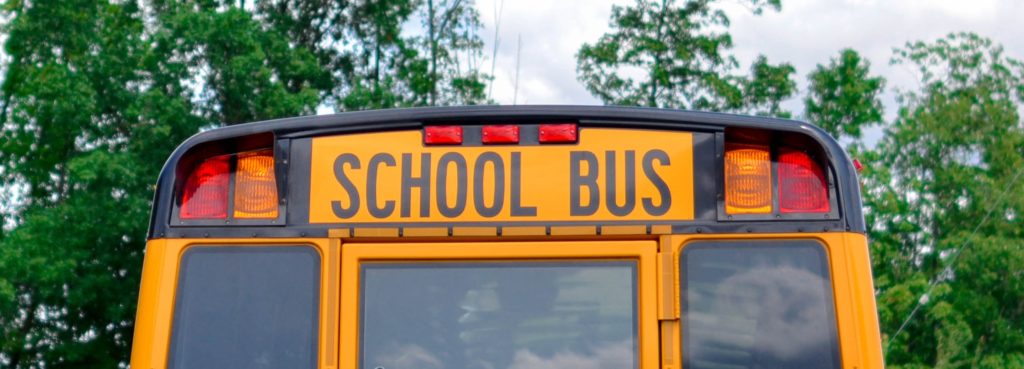Will Tinker survive social media?
This morning, April 28, 2021, The Supreme Court of the United States heard oral arguments regarding Mahanoy Area School District v. B.L., a case about whether a school can regulate students’ off-campus speech.
B.L., a female junior, former varsity cheerleader, posted a picture to her Snapchat account with her middle finger raised and numerous obscenities captioned on the picture in response to her frustrations from not being named to the varsity cheerleading team.
Several cheerleaders and non-cheerleaders were upset by the profanity. They told the cheerleading coaches, and the coaches suspended B.L. from the team for allegedly violating team rules regarding foul language and demeaning cheerleading. B.L. sued the school district claiming First Amendment violations.
The Supreme Court heard argument today following the school district’s appeal from the Third Circuit’s decision that Tinker could not be applied to off campus speech. Background on the case and our article on the Third Circuit’s opinion can be found here.
The question surrounding the oral arguments concerned the reach and application of Tinker v. Des Moines, in which the Supreme Court notoriously held that while a student does not ‘shed their constitutional rights at the schoolhouse gate,” public schools do have the authority to discipline students for speech where it will create a material and substantial disruption of a school’s operation. The question now turns on whether a school can extend this authority to a student’s off-campus speech, specifically off-campus speech conducted through social media.
Mahanoy Area School District claims B.L. directed her Snapchat at her fellow cheerleaders, coaches, and school friends, which led to a disrupted school environment. While the district did submit that there is a line that needs to be drawn between a person taking offense to something and a substantial disruption in a school environment, the district argued Tinker applies regardless of the location where the speech occurred because B.L. directed her speech towards the school, the cheerleading team, and coaches.
Additionally, the school district attorneys stated that political and religious speech, again regardless of location, is allowed as long as there is not a material and substantial disruption to the learning environment to the school. Here, the school district argued, the Snapchat, sent on during the weekend from a local convenience store, was correlated to the school in that the disruption caused within the school environment was attributed to B.L. off-campus speech.
Justice Kavanaugh stated he believed the school’s and coach’s response seemed more like an over-reaction to a kid voicing their frustrations and disappointment about being cut from their team. Justice Breyer expressed concern with allowing schools the authority to discipline students for using curse words away from school, arguing that schools would be doing nothing but punishing students under that standard.
The student argued Tinker should not extend to cases in which the speech occurred outside of the school, because it could create a dangerous slippery slope, potentially undermining a student’s right to free speech. While schools have the authority to ban profanity and obscenities, they must do so only when the speech occurred on school ground. If the speech occurred during the weekend at home or through social media at a grocery store, Tinker cannot apply. Counsel argued that expanding Tinker to off-campus speech through social media would create a 24/7 house rule, in which students would have to ‘carry the schoolhouse on their backs” and infringe on a parent’s fundamental rights to discipline their child while not under school supervision.
When asked about how modern technology fits into the debate regarding student speech, counsel argued that the internet does not extend a school’s ability to regulate a student’s speech. As a matter of fact, it underscores it because that is how kids outside of school talk with one another in the modern era. Counsel provided a test in which schools have authority and jurisdiction to regulate a student’s speech under Tinker, if and only if, the speech happens under the school environment, which included on-campus instruction hours, school sponsored or supervised events, or school sponsored websites or publications. When outside of school, the school may not use regulate speech under Tinker. However, that does not mean a school cannot take action, but they would have to do so under a First Amendment analysis.
Some Justices were concerned with creating a distinction between off-campus and on-campus speech in regard with modern technology. Justice Alito expressed broad concerns regarding bullying and speech aimed at other students with the use of technology.
Bottom Line for Schools
The argument in the Supreme Court today is a poignant example of how advances in technology challenge what was considered to be settled law. It is difficult to imagine that this case would have ever arisen if the disappointed cheerleader had simply voiced her feelings at the local mall or in the line at McDonalds. While some Justices, especially Justice Alito, expressed the desirability of a bright line test for when Tinker should apply, the overall impression taken from the Court’s questions suggested that a majority would permit Tinker to apply even in cases of off campus speech where it caused a true disruption. Some Justices suggested that the facts of the case could prohibit any sweeping change in the law on student speech.
Additionally, in the event Tinker does not apply, some Justices questioned if a school still would have authority to discipline a student because of their voluntary agreement to conditions and regulations set for athletic or extracurricular participants. Don’t hold your breath for clear guidance coming from a decision in this case.
If you have a question, please contact your legal counsel or one of the Education attorneys at KingSpry.
School Law Bullets are a publication of KingSpry’s Education Law Practice Group. John E. Freund, III, is our editor. This article is meant to be informational and does not constitute legal advice.







